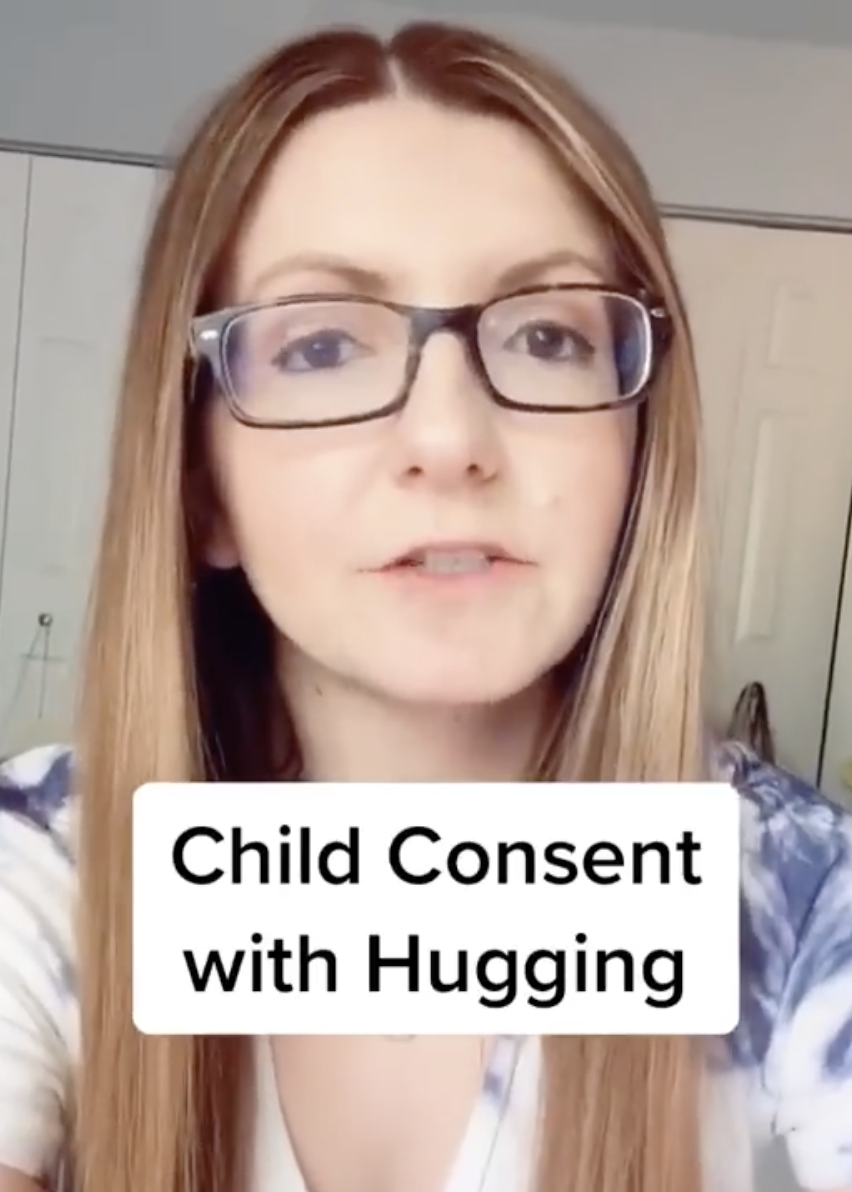Alissa is a 32-year-old mother and elementary school teacher from the Chicago area. She recently went viral on TikTok for showing the unique parenting style she uses to teach her two sons, aged 2 and 4 years old, how to exercise consent.
In the video, Alissa asks her son if he needs help doing certain tasks, like picking out his clothes and brushing his hair, and models her actions after his responses.

She also asks permission before hugging her son and uses his verbal cues for other physical situations like tickling. For example, she stops tickling immediately when he tells her to stop.
Alissa also shared how she practices body autonomy with her younger son while she changes his diapers. In the video, she communicates with him and explains what she's doing so he doesn't feel like "a passive observer."
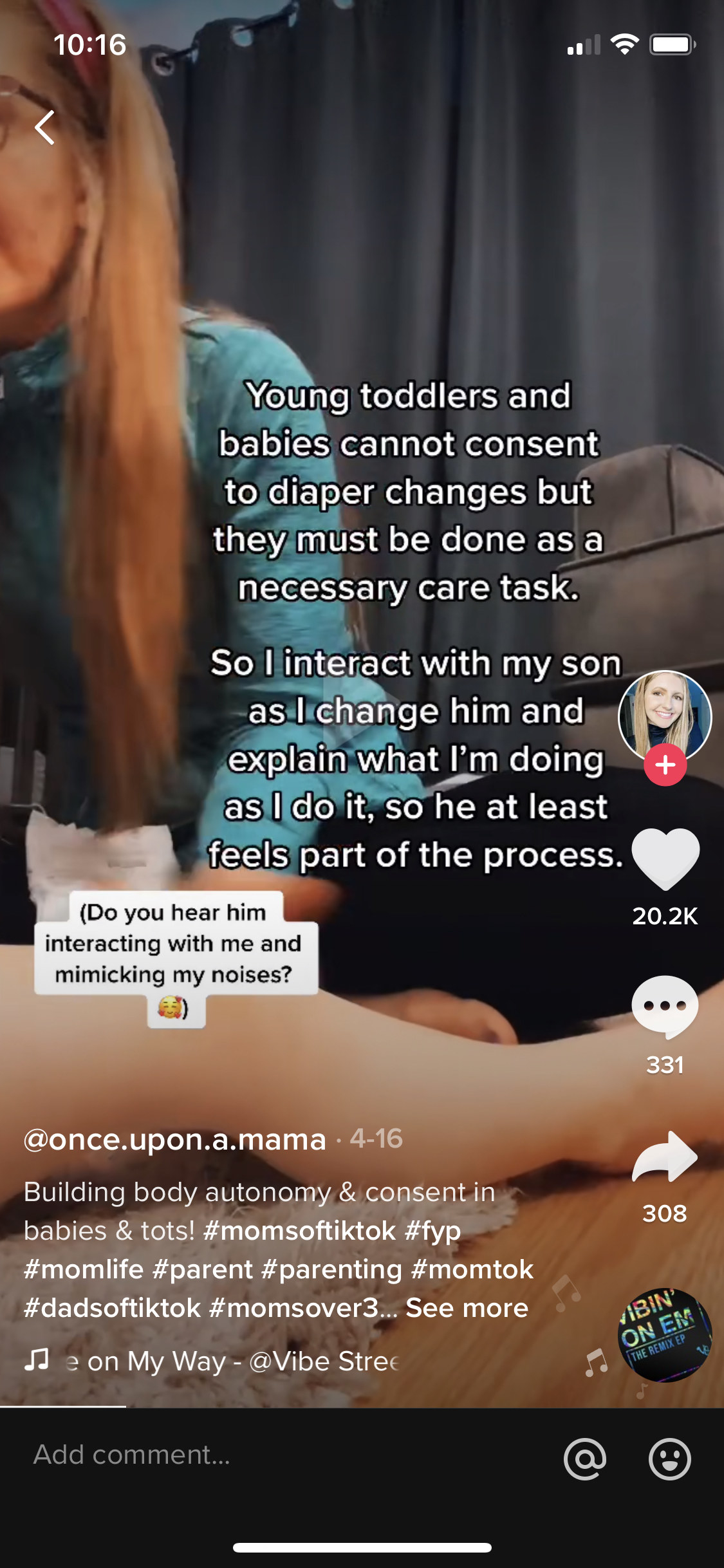
Alissa's TikToks currently have over 7 million views and have opened an interesting conversation in the comments around parents and boundaries. Many people praised her for this method, saying they plan to use it on their children in the future.
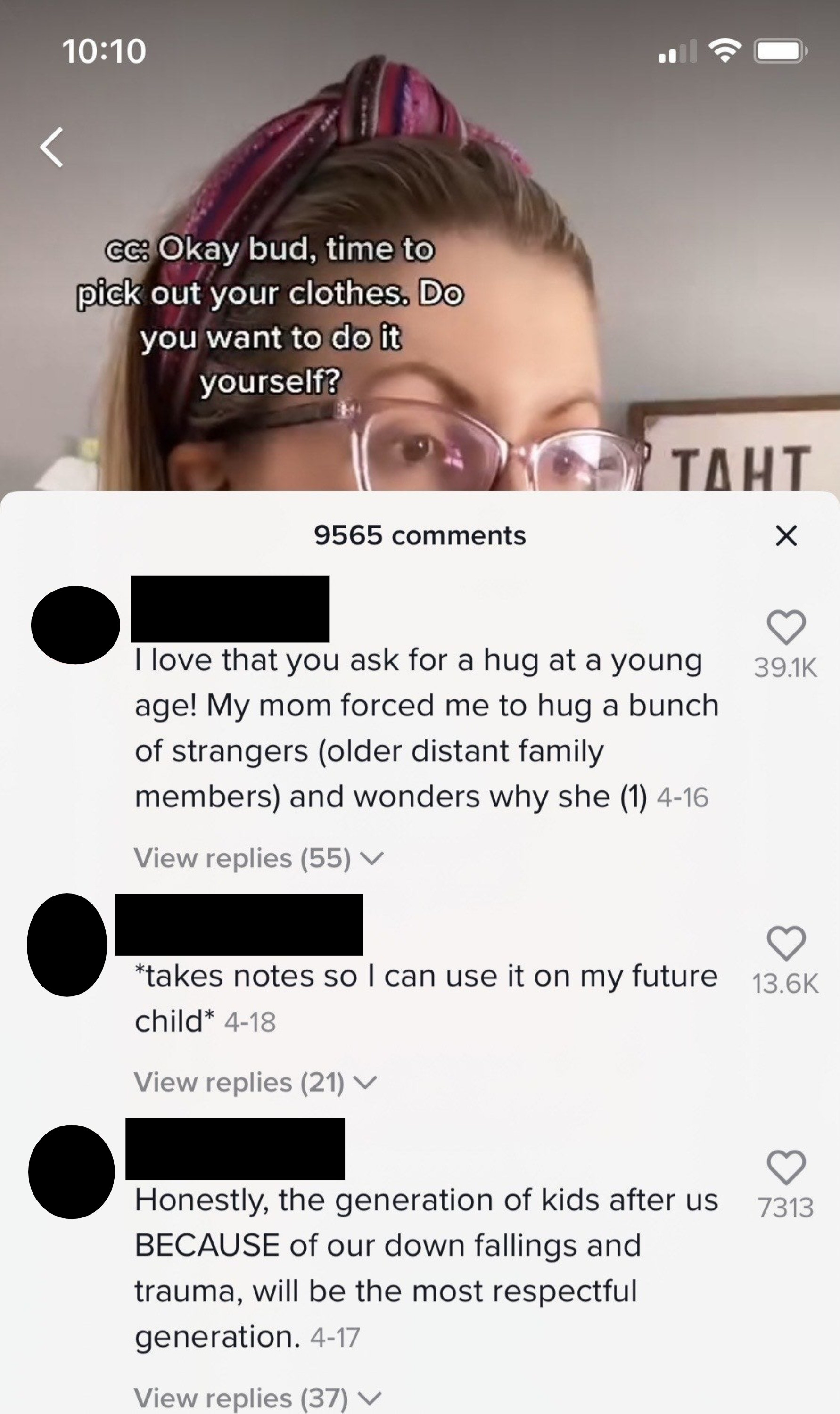
Alissa told BuzzFeed that she learned about consensual care tasks in caregiving during her early childhood education curriculum at Illinois State University. "Throughout my years of working with children, I had time to practice these skills and activities to see what worked and what didn’t work. It made sense to me to carry over the same methods to my own children. I believe teaching children consent and body boundaries should be one of the very first things they learn in the world."
She splits her parenting tasks into "must-do care tasks" and "may-do care tasks," which differ in how she approaches them with her sons. "Must-do care tasks have to be done, but you can give them controlled choices within them so the child has some options and thinks they’re in control of their body in SOME way, and the task is completed."
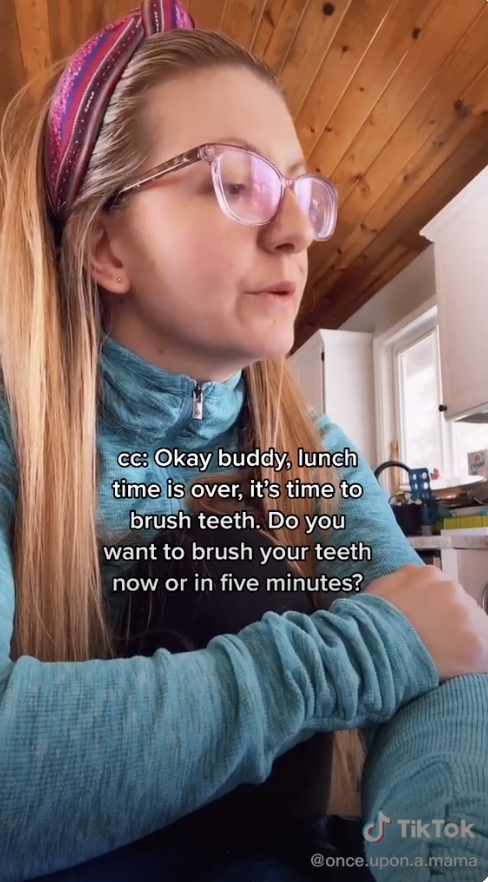
"For example, if it’s time to brush their teeth, I’ll say, 'Would you like to brush now or in five minutes?' They feel they have autonomy over their body, we both feel it was a consented task, and I’m happy because my children are cared for."
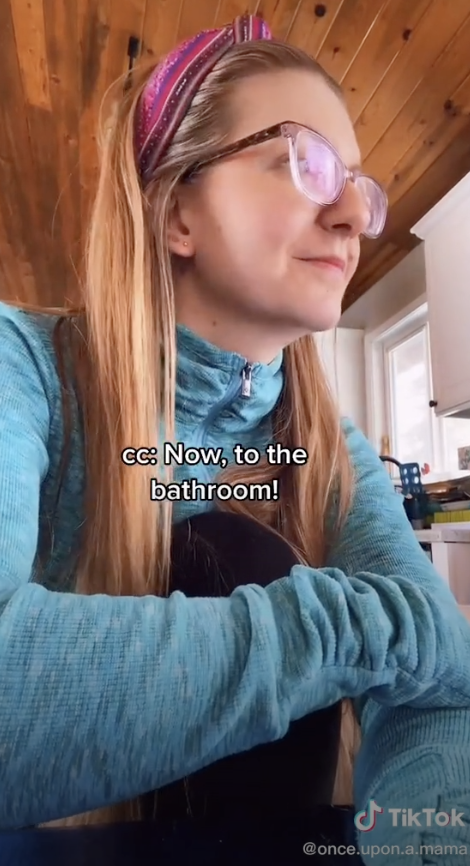
"A lot of people ask me what I do when they say no still after the five minutes. ... That’s when I remind them of the deal we made, and why it’s important for their body to do the task. If that still doesn’t work, then I recommend parents doing whatever their normal go-to would be for discipline or redirection. For my sons, I may just redirect them and distract with a different activity for a few minutes and then take them to brush their teeth. It may be loss of a privilege, it may be brushing your teeth together to motivate them, or it may be a 'time in' for a few minutes. Lots of options, but you have to do what’s effective for your child, since all are unique."
When it comes to "may-do care tasks," she offers more wiggle room and autonomy. "I would ask first before doing [those] because they aren’t completely necessary! Does your daughter REALLY need to have a bow in her hair if she doesn’t want it, just because it looks cute?"
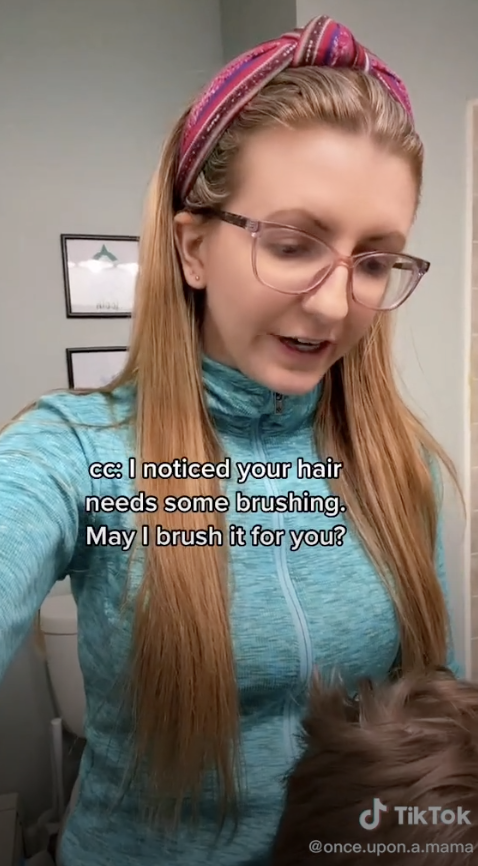
And one area that Alissa finds non-negotiable when it comes to consent: physical touch.
"I think consent during the physical touch like hugs or tickling is imperative for all ages (except hugging babies, of course, since they need that nurturing). I think all adults can agree that there was some time in their lives that they did not want to be tickled, and even when they told the person to stop tickling, they didn’t. And it was a terrible feeling, they felt like they weren’t in control of their bodies. So, ask children first if you can hug them, if you can tickle them, etc. And if they say stop, STOP! We want to have them understand boundaries of their own bodies and others."
Although this method works for her and her sons, Alissa acknowledges that it may be different for families with different needs. "I believe that this method could definitely prove difficult for parents of children with disabilities, learning difficulties, etc., but just like everything else, you can make accommodations so that your child can still take part in learning about bodily autonomy and consensual activities. An excellent resource would be your child’s special education teacher or classroom teacher, since they know your child’s learning capabilities best."
